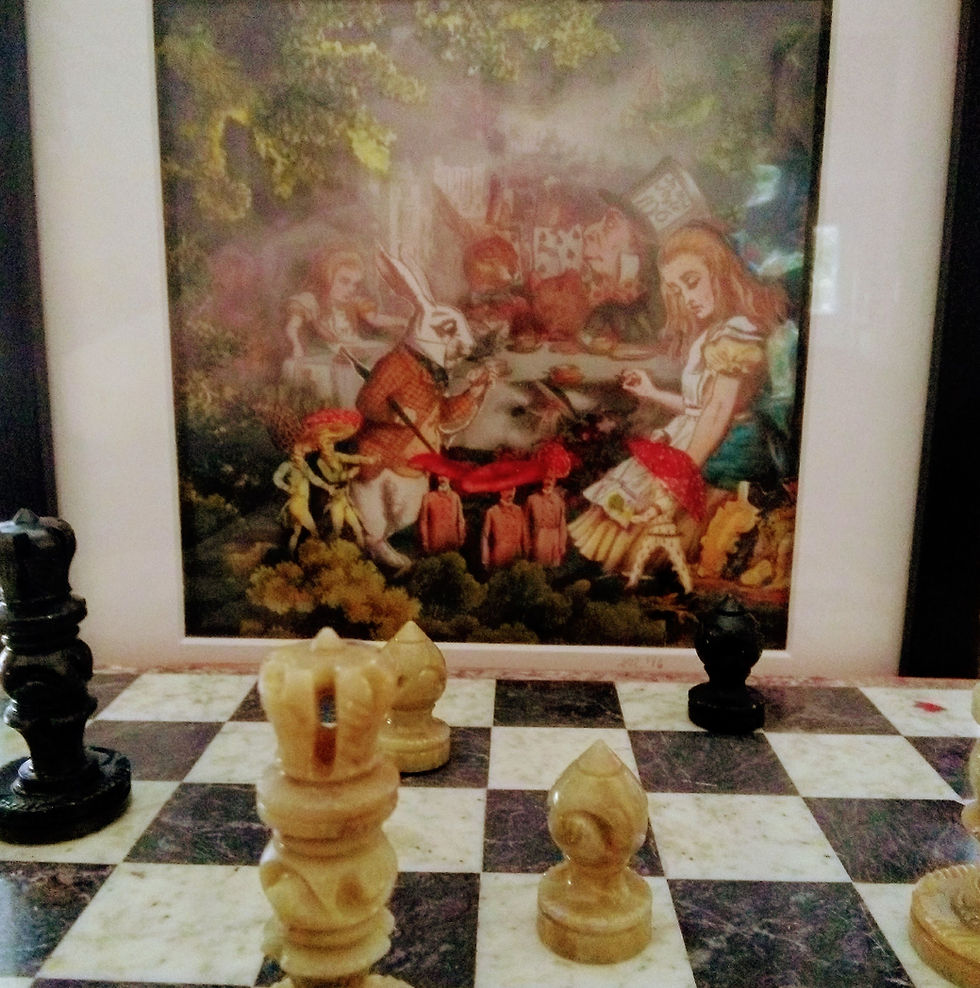Mindful Chess and Chess In Fiction
- Abigail Prendergast

- Jun 11, 2019
- 2 min read
Updated: Aug 25, 2025

People often ask us what the difference is between regular chess and “Mindful Chess”. In truth, we believe all chess is mindful. Mindfulness is the state of focusing one’s awareness on the present moment and this is what the chess player must do if they want to succeed. All external worries are ideally abandoned, leaving the mind to dedicate its’ full attention to the board.
The trouble is, many clubs have left this out of their chess theory. Indeed, chess may have a reputation as a strategic and logical game, which it most certainly is. Equally though, the game has been proven time and time again to enhance creative thinking, stimulating both sides of the brain. This level of stimulation and the use of creative problem solving are mindful practices.
It is no wonder that countless writers over the centuries have found themselves inspired by the game, including some of the most notable authors and poets in literary history.

In Lewis Carroll's Through The Looking Glass, chess is not a medium for seriousness but the contrary. Alice encounters all kinds of curious chess characters and she herself is placed on the second rank, like a pawn. Alice is told that she will be made a queen if she makes it to the eighth rank, where she will join the eccentric Red and White majesties. The chessboard in Wonderland is home to a magical world where even ordinary little girls are given the opportunity to become Queens.
Elsewhere in literature, chess presents this possibility of becoming something greater in a variety of surprising ways.
In the Harry Potter series, the sidekick becomes a hero when Ron takes on a giant enchanted chess set and wins Harry’s passage to the philosopher’s stone. Modernist writers such as Samuel Beckett have used chess as a platform for exploring the paradoxical limitation and freedom of life. After all, a game of chess may have set rules but the possibilities within a single game are equally infinite. Beckett’s characters find a freedom on the chessboard which they may struggle to find in everyday life.
Terry Pratchett, T.S. Eliot, Nabokov and even the writers of Star Trek have also entertained the game in their fiction. Perhaps writer’s fascination with the game has something to do with how playing chess and creating art are not all that dissimilar. Chess itself in fact mirrors the very act of writing, given that it requires thought, strategy and the creative spark of originality.
We are always talking about how chess can improve our children’s concentration, but chess also provides young players with something equally valuable. At our online chess lessons, we use the game to teach the lesson that thought and focus open the doors to opportunity. Just like Alice learns in Wonderland and Mr Endon learns in Beckett’s Murphy, we emphasise that when our minds are properly engaged, the possibilities ahead are infinite.
If you would like to find out more, get involved with our team or even find out how we can introduce chess to your child’s school, contact us here.










Comments